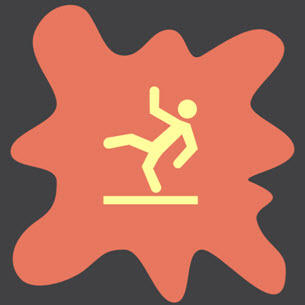Each year, more people are rushed to the emergency room for falls (some eight million) than for any other purpose. That includes things like medical emergencies, drug overdoses, and car crashes. The risk of falls is especially acute among older people. The injuries sustained are also more serious in this age group. But a serious fall can happen to anyone in Florida at any time.
Damages in these cases typically include compensation for both economic damages, like hospital bills and lost wages, as well as noneconomic damages, like emotional distress and loss of enjoyment in life. Additional punitive damages may be available as well, in some cases.
Direct Responsibility in Florida Fall Injury Claims
Most American jurisdictions, including Florida, assign legal responsibility in these cases according to a classification system. This system is rooted in the common law. It has basically three categories:
- Invitee: Most victims are at a place because they had permission to be there. Maybe that permission came directly from the owner’s mouth, or maybe there was an “open for business” sign in the window. Moreover, owners obtain a benefit in most of these cases. That benefit could be economic or noneconomic. If the victim was an invitee, the landowner has a duty of reasonable care. That duty also implies frequent inspections to ensure that the property is reasonably safe.
- Licensee: A few victims have permission to be at a place but their presence does not create a benefit. The guest of an apartment tenant is a licensee, as far as the owner is concerned. Because of the lesser relationship, there is a lower duty. In these situations, the owner need only warn the licensee about latent (hidden) defects.
- Trespasser: If there was no permission and no benefit, there is generally no duty. This category is not limited to burglars and other ne’er-do-wells. Church missionaries may arguably be trespassers.
There are a couple of exceptions to the trespasser no-duty rule. The first is the frequent trespasser doctrine. It applies in cases like a group of hunters which accidentally strays over the property line. Florida lawmakers have limited this exception. The other one is the attractive nuisance rule. This doctrine frequently applies in swimming pool drowning cases. It applies to certain child trespassers who play in fun yet dangerous places, like swimming pools.
Indirect Responsibility in Florida Slip-and-Fall Cases
Sometimes, a third party creates the dangerous condition which causes injury. Under older Florida law, such third-party actions basically immunized landowners in these cases. But that was then, and this is now.
Liability may still attach if the injury was foreseeable, as far as the owner was concerned. To determine foreseeability, Florida courts look at a number of factors, including:
- Prior similar accidents at nearby locations,
- Any reports of potential problems the owner may have received, and
- Prior similar accidents at that location.
If the injury was foreseeable, the owner cannot use the third party’s action (or inaction) as an excuse to avoid liability or even limit compensation. Instead, the owner is probably responsible for the full measure of damages, as outlined above.
Contact Aggressive Attorneys
Owners are usually responsible for injuries which occur on their property. For a free consultation with an experienced personal injury lawyer in Brandon, contact Reed & Reed. We have four area offices (St. Petersburg, Lakeland, Tampa, and Clearwater).

